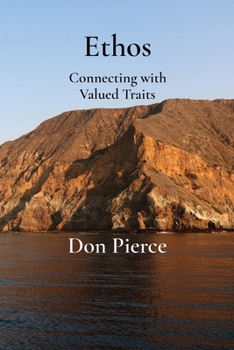Ethos: Connecting with Valued Traits
Select Format
Select Condition 
Book Overview
Ethos helps you develop the personal traits that are revered in your community. Such traits include: honesty, responsibility, fairness, and respect. Without incorporating these traits into your character, without being kind or contributing to your community, one will not be able to have a happy life and a regenerated natural environment. The achievement of such characteristics is the purpose for reading Ethos.
After the four interesting and helpful preparatory books in Heartwood Path, Part One, Ethos is the first of three books devoted to guiding you on your spiritual journey as an individual. You will learn about the useful natural laws (different from universal laws printed in earlier Heartwood Path books) that will affect your safe and effective progress through the stages of your life cycle.
These dictums include the Natural Law of Thankfulness (to receive what you want you have to be thankful for what you have), the Natural Law of Affection (the Creator's affection for what was created and it is that same divine fondness that enables you to reach the highest levels of growth and awareness), and Natural Laws of Determination, Desirability, and many others. Use these Natural Laws to build happiness for yourself as you serve in the cause of regenerating the natural environment.
With the help of positive natural traits and guiding natural laws, the reader of Ethos is ready to learn about the continuous circling unfoldment of one's wheel of life, which, in sum, is anything but haphazard. If all goes well, one's life begins with ascent to Spirit and the search for belonging during one's youth and passes through descent to Soul and the search during one's adulthood for how best to serve the community of life before starting over again in another life after elderhood and death.
Subjects included in Ethos are revealed in its thirty-three important prescriptions, which include:
In support of all of the topics in Ethos are fun and revelatory outdoor activities. Some examples include:
Additional topics presented in Ethos include:
The Heartwood Path is unique and enjoyable course of study that shows ways to simultaneously bring about increased personal happiness and a regenerated local and global environment. Like all Heartwood Path books, Ethos uses eco-psychology, conservation psychology, and communing with nature to help participants reawaken to their bond with nature.












































